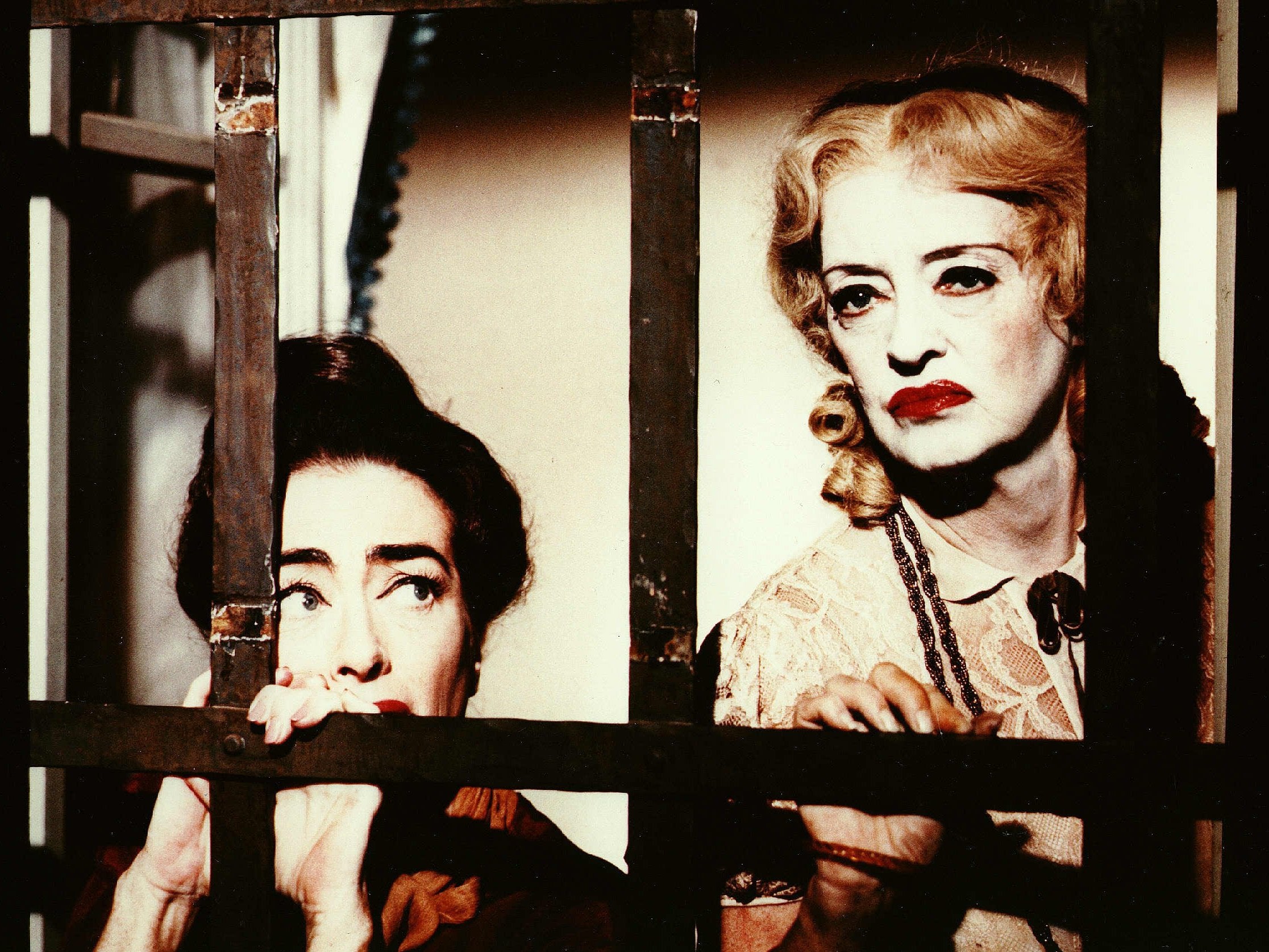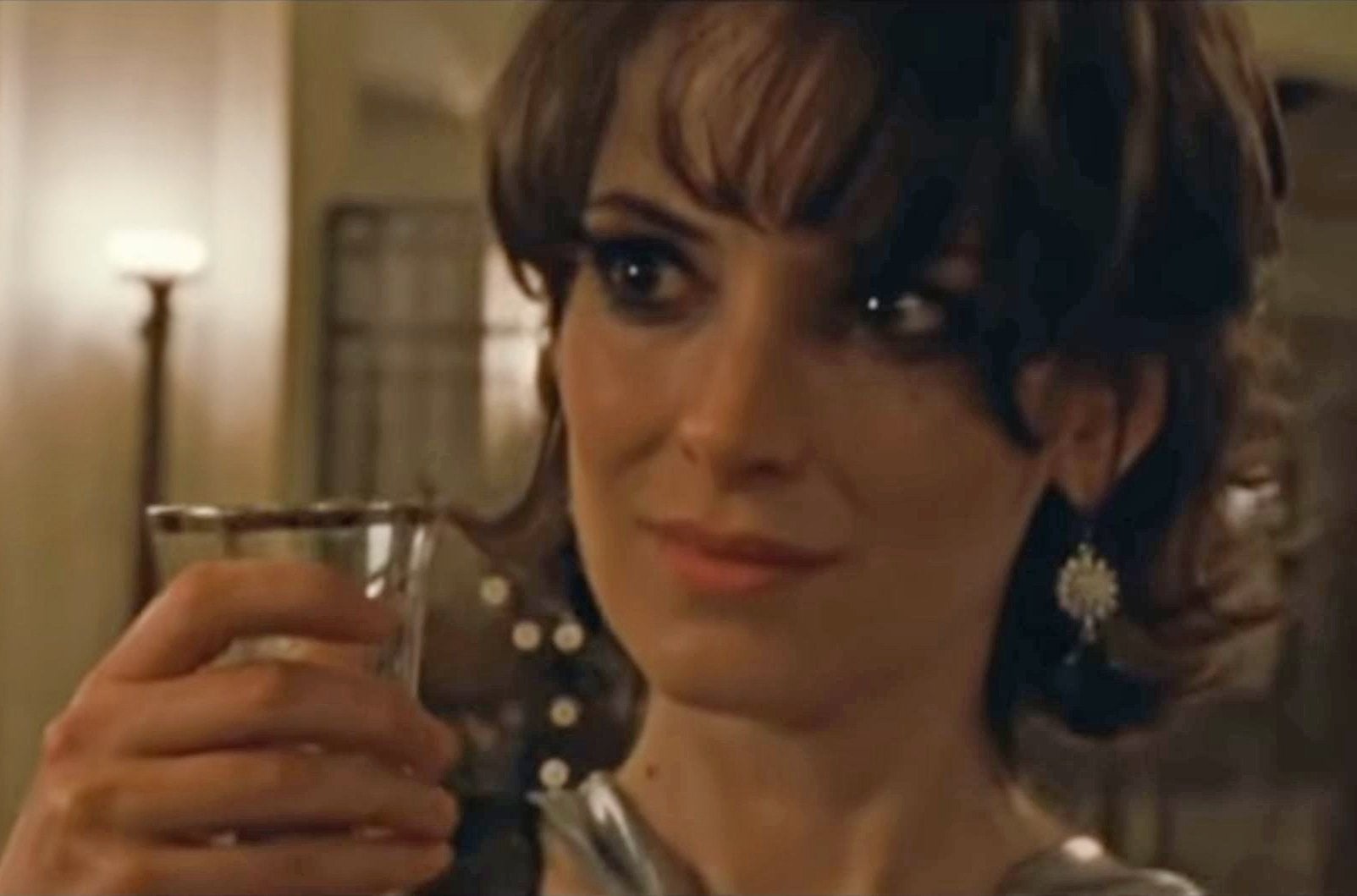Have horror movies made a monster out of the older woman?
Isabelle Huppert’s performance in ‘Greta’ may be a hoot, but the film reveals much about society’s obsession with ageing, Clarisse Loughrey writes


Your support helps us to tell the story
From reproductive rights to climate change to Big Tech, The Independent is on the ground when the story is developing. Whether it's investigating the financials of Elon Musk's pro-Trump PAC or producing our latest documentary, 'The A Word', which shines a light on the American women fighting for reproductive rights, we know how important it is to parse out the facts from the messaging.
At such a critical moment in US history, we need reporters on the ground. Your donation allows us to keep sending journalists to speak to both sides of the story.
The Independent is trusted by Americans across the entire political spectrum. And unlike many other quality news outlets, we choose not to lock Americans out of our reporting and analysis with paywalls. We believe quality journalism should be available to everyone, paid for by those who can afford it.
Your support makes all the difference.Neil Jordan’s new horror-thriller Greta does require a small leap of the imagination: we’re meant to be terrified, not secretly honoured, by the prospect of being stalked by Isabelle Huppert.
Yet, these are the demands of the horror genre. For all of Huppert’s mordant charm, she’s still a woman over 40 – that means her character probably has plans to suck the youth out of some poor, unsuspecting soul.
In Greta, the target is Frances (Chloe Grace Moretz), a kind-hearted waitress who returns a missing handbag to Huppert’s Greta. The older woman initially comes across as a sweet, unassuming maternal figure. Perhaps she can help soothe Frances’ grief over the recent loss of her own mother. But, soon enough, that affection turns into fixation, and we’re treated to the image of Huppert, in an upscale restaurant, smashing wine glasses and flipping over tables.
In horror, women at different ends of the age spectrum have a tendency to form twisted relationships. The elder desires both to become and to possess the younger, in equal measure. There’s already a debate as to whether there’s a sexual subtext to Greta’s obsessions. But the more unequivocal reading is that the character feeds neatly into the tradition of “hagsploitation” – a derogatory term, but one that still accurately highlights an entire history of older actresses cast as mad women on the rampage.
Most famously, in What Ever Happened to Baby Jane?, Joan Crawford and Bette Davis played two sisters trapped in a self-made hell, as both clung to the faded glory of their years as child stars. Although both were preceded by Gloria Swanson’s Norma Desmond, a delusional silent-film actor still living in her own fantasy world in 1950’s Sunset Boulevard, Crawford and Davis’s latter-stage careers helped solidify “hagsploitation” as a cinematic trend. Davis, for example, starred in Hush… Hush, Sweet Charlotte, playing a spinster haunted by the decapitated head of her former lover. Crawford, meanwhile, took a role as an axe-murderer in Strait-Jacket.
And while “hagsploitation” itself may have waned in popularity, we’re still used to seeing older woman typecast as sinister figures in the horror genre. They’re the ones terrorising Jack Torrance in room 237 (The Shining), forcing Rosemary to bear the Antichrist (Rosemary’s Baby), or manifesting themselves as demonic nuns (The Conjuring). In 2006, Meryl Streep noted that older woman were rarely written as anything other than “gorgons or dragons or in some way grotesque”. Since older men, on average, appear nearly 10 times more frequently than older women in the media (a phenomenon termed “symbolic annihilation” by academics), it becomes easier to mythologise women in such a way. Their humanity is removed and, instead, they become vessels for our societal fears. Whether they transform into vengeful obsessives like Greta or decaying phantoms like Miss Havisham, those older women who do not accept their diminishing lot in life are rewarded with nothing but madness.

It’s what inflicts Black Swan’s Beth (Winona Ryder), who, by ballet standards, is officially past her prime. She now wanders the halls of her former dance company, mascara streaming down her face, as she spits venom at the favoured new star (Natalie Portman’s Nina). Beth is a ghostly premonition of what will befall Nina herself if she allows herself to be overshadowed by her more youthful, lively competitor, Lily (Mila Kunis). Yet, as much as Nina fights against it, her own fall from grace is posited as an inevitability.
The same cycle also threatens the women of Nicolas Winding Refn’s The Neon Demon, as Elle Fanning’s teenage naivete gives her immense power as a model in LA’s beauty-addicted scene, but also puts a target on her back. The women around her are not only driven to madness by her youth, but to all-out cannibalism, as they desperately attempt to restore some part of what they’ve lost.

The youthful having their vitality drained from them by ravenous elders is a favoured theme of the horror genre. After all, it underpins much of the mythology of the vampire, as immortality and preservation can arise only from the destruction of others – often young, often female, and assuredly beautiful. What bubbled quietly underneath the goings-on of 1977’s Suspiria became much more explicit in its 2018 remake, as a Berlin dance school provides a front for a coven of witches coaxing young bodies into performing ritual sacrifice.

Watch Apple TV+ free for 7 days
New subscribers only. £8.99/mo. after free trial. Plan auto-renews until cancelled

Watch Apple TV+ free for 7 days
New subscribers only. £8.99/mo. after free trial. Plan auto-renews until cancelled
Admittedly, it’s no coincidence that so many of these films were made by men, since women remain enough of a mystery to them that, in their eyes, they can move through the world as living symbols. But when older women are so rarely given the opportunity to tell their own stories – to share every ounce of their hopes and fears – it ends up being only the symbol that we see. These films aren’t misguided in their efforts, but they also can’t be the only narratives we tell ourselves. Indeed, the likes of Black Swan, The Neon Demon or What Ever Happened to Baby Jane? don’t offer us truth, but they do, as all good horror does, bottle up a particularly anxiety and unleash it on audiences in full force. And there is worth in that.
In 2017, psychologist Renee Engeln coined the term “beauty sick” to reference what she saw a society-wide mental illness that fixates on women’s appearances. The stalkers, witches and cannibals that take bloody measures to seek their own self-preservation serve as living incarnations of this. Their desperation recalls that blinding moment of existential terror that arises from the first grey hair, or the first wrinkle under the eyes. But it also acknowledges that it’s society that has so rigorously preprogrammed women to react in this way, making them feel like every passing year renders them a little more invisible to the world. And it’s society that pushes them to a point that, just like Greta, they might feel like flipping a table or two.
Greta is out in UK cinemas now
Join our commenting forum
Join thought-provoking conversations, follow other Independent readers and see their replies
Comments